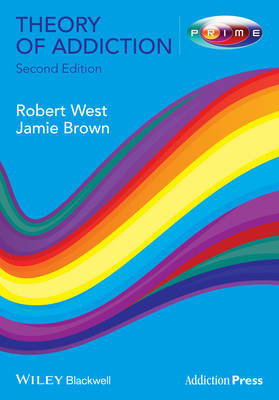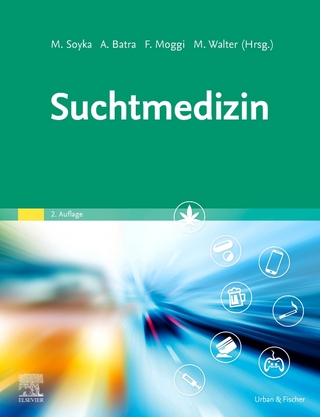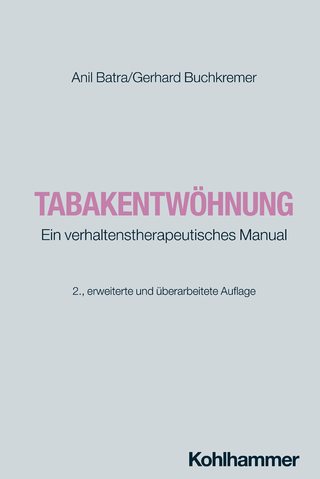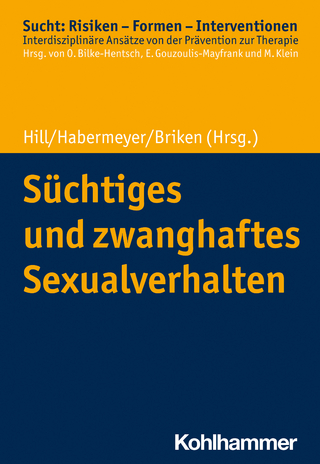
Theory of Addiction
Wiley-Blackwell (Verlag)
978-0-470-67421-5 (ISBN)
The word ‘addiction’ these days is used to refer to a chronic condition where there is an
unhealthily powerful motivation to engage in a particular behaviour. This can be driven by
many different factors – physiological, psychological, environmental and social. If we say that it
is all about X, we miss V, W, Y and Z. So, some people think addicts are using drugs to escape
from unhappy lives, feelings of anxiety and so on; many are. Some people think drugs become
addictive because they alter the brain chemistry to create powerful urges; that is often true.
Others think that drug taking is about seeking after pleasure; often it is. Some take the view that
addiction is a choice – addicts weigh up the pros and cons of doing what they do and decide
the former outweigh the latter. Yet others believe that addicts suffer from poor impulse control;
that is often true… And so it goes on.
When you look at the evidence, you see that all these positions capture important aspects of
the problem – but they are not complete explanations. Neuroscience can help us delve more
deeply into some of these explanations, while the behavioural and social sciences are better at
exploring others. We need a model that puts all this together in a way that can help us decide
what to do in different cases. Should we prescribe a drug, give the person some ‘tender loving
care’, put them in prison or what? Theory of Addiction provides this synthesis.
The first edition was well received:
‘Throughout the book the reader is exposed to a vast number of useful observations...The
theoretical aims are timely, refreshing, ambitious and above all challenging. It opens up a new
way of looking at addiction and has the potential to move the field of addiction a considerable
leap forward. Thus we wholeheartedly would like to recommend the book for students as well
as scholars. Read and learn!’ Nordic Studies on Alcohol and Drugs
‘The book provides a comprehensive review of existing theories - over 30 in all - and this
synthesis of theories constitutes an important contribution in and of itself... West is to be
commended for his synthesis of addiction theories that span neurobiology, psychology and
social science and for his insights into what remains unexplained.’ Addiction
This new edition of Theory of Addiction builds on the first, including additional theories in
the field, a more developed specification of PRIME theory and analysis of the expanding
evidence base.
With this important new information, Theory of Addiction will continue to be essential reading
for all those working in addiction, from student to experienced practitioner – as urged above,
Read and learn!
Robert West is Director of Tobacco Studies at the Cancer Research UK Health Behaviour Unit at University College London. He has been researching tobacco and nicotine dependence since 1982 and has published more than 250 scientific works. His research involves surveys of smoking patterns, clinical trials of aids to smoking cessation and laboratory studies of nicotine withdrawal symptoms. He is co-author of the English National Smoking Cessation Guidelines that provided the blueprint for the English Stop Smoking Services and is also Editor-in-Chief of the journal, Addiction.
Preface ix
1 Introduction: journey to the centre of addiction 1
Preparing for the journey 1
In the end 3
What this book does 5
The synthetic theory of addiction in brief 7
References 9
2 Definition, theory and observation 10
Defining addiction (addiction is not an elephant) 10
Diagnosing and measuring addiction 20
Theory and supposition 22
‘Big observations’ in the field of addiction 30
Recapitulation 36
References 36
3 Beginning the journey: addiction as choice 41
Addiction as a reflective choice 41
Box 3.1 The myth of addiction 44
Box 3.2 Vaguely right or precisely wrong? The Theory of Rational Addiction 45
Box 3.3 The Self-medication Model of addiction 50
Box 3.4 Opponent Process Theory 53
Irrational, ill-informed choice and unstable preferences 60
Box 3.5 Expectancy Theories 62
Box 3.6 Skog’s Choice Theory 65
Box 3.7 Slovic’s Affect Heuristic 67
Box 3.8 Cognitive Bias Theories 70
Box 3.9 Behavioural Economic Theories 72
Box 3.10 Gateway Theory 78
Box 3.11 The Transtheoretical Model of behaviour change 80
Box 3.12 Identity shifts and behaviour change 86
Addiction as the exercise of choice based on desires 87
References 89
4 Choice is not enough: the concepts of impulse and self-control 95
Reports of feelings of compulsion 95
Powerful motives versus impaired control 96
Box 4.1 The Disease Model of addiction 96
Personality and addiction typologies 98
Box 4.2 Tridimensional Personality Theory 98
Self-efficacy 100
Box 4.3 Self-efficacy Theory 100
The transition from lapse to relapse 102
Box 4.4 The Abstinence Violation Effect 102
Impulse control 105
Box 4.5 Inhibition Dysregulation Theory 106
Self-regulation as a broadly based concept 108
Box 4.6 Self-regulation Theory 108
Urges and craving 108
Box 4.7 A Cognitive Model of Drug Urges 109
Addiction as a failure of self-control over desires and urges 110
References 111
5 Addiction, habit and instrumental learning 114
Instrumental learning 114
Box 5.1 Instrumental learning (operant conditioning) and addiction 115
Mechanisms underpinning instrumental learning 118
Box 5.2 The Dopamine Theory of Drug Reward 119
Box 5.3 Addiction arising from functional neurotoxicity of drugs 121
Classical conditioning 122
Box 5.4 Classical conditioning and addiction 122
More complex learning models 124
Box 5.5 Addiction as a learning/memory process 125
Box 5.6 Incentive Sensitisation Theory 126
Box 5.7 Balfour’s theory of differential drug effects within the nucleus accumbens 129
Social learning 130
Box 5.8 Social Learning Theory 131
Associative learning 133
References 133
6 Addiction in populations, and comprehensive theories 136
Addiction in populations 136
Box 6.1 Diffusion Theory 137
Comprehensive theories of addiction 139
Box 6.2 Excessive Appetites Theory 140
Box 6.3 The Pathways Model of pathological gambling 146
What is addiction and how can we explain it? 149
References 150
7 Development of a comprehensive theory 152
A functional classification of theories of addiction 153
Addiction as reflective choice 158
Addiction as irrational choice 162
Addiction, compulsion and self-control 165
Addiction, instrumental learning and habit 168
Addiction, choice, compulsion and habit 179
References 185
8 A synthetic theory of motivation 192
Understanding behaviour in context: the COM-B model 192
Focus on motivational theory 194
The human motivational system 194
Structure and function of the human motivational system 195
The ‘head model’ 205
Momentum and inertia 206
Adaptation: ways in which experience affects motivational disposition 207
The ‘representational system’, consciousness and dual process models 210
Self and self-control 213
Mental effort and motivational resources 216
What motivates us 216
The unstable mind 218
A summary: key propositions from PRIME theory 225
References 227
9 A theory of addiction 229
Addiction is 229
The pathologies underlying addiction 230
A return to some ‘big observations’ about addiction 233
The abnormalities underlying addiction 241
Effects of interventions 244
Recommendations and predictions regarding addiction interventions 244
Testing the theory 250
First results 251
Conclusions 252
References 253
Index 257
| Reihe/Serie | Addiction Press |
|---|---|
| Verlagsort | Hoboken |
| Sprache | englisch |
| Maße | 170 x 244 mm |
| Gewicht | 431 g |
| Themenwelt | Medizin / Pharmazie ► Medizinische Fachgebiete ► Suchtkrankheiten |
| ISBN-10 | 0-470-67421-0 / 0470674210 |
| ISBN-13 | 978-0-470-67421-5 / 9780470674215 |
| Zustand | Neuware |
| Haben Sie eine Frage zum Produkt? |
aus dem Bereich


